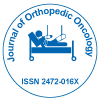Наша группа организует более 3000 глобальных конференций Ежегодные мероприятия в США, Европе и США. Азия при поддержке еще 1000 научных обществ и публикует более 700 Открытого доступа Журналы, в которых представлены более 50 000 выдающихся деятелей, авторитетных учёных, входящих в редколлегии.
Журналы открытого доступа набирают больше читателей и цитируемости
700 журналов и 15 000 000 читателей Каждый журнал получает более 25 000 читателей
Индексировано в
- Google Scholar
- РефСик
- Университет Хамдарда
- ЭБСКО, Аризона
- OCLC- WorldCat
- Публикации
- Евро Паб
- ICMJE
Полезные ссылки
Журналы открытого доступа
Поделиться этой страницей
Абстрактный
Brief Discussion on Metastatic Bone Osteolysis
Perez Jessica
Bone-resorbing osteoclast activation facilitates breast and prostate carcinoma bone metastasis. We have identified peroxiredoxin-4 (PRDX4) as a mediator of osteoclast genesis that is released by cancer cells through proteomics methods. Using immunoblotting and mass spectrometry, we now report the characterization of L-plastin in MDA-MB-231 human breast cancer cells’ conditioned media (CM). With L-plastin silenced by siRNA, the osteoclastogenic potential of MDA-MB-231 CM was significantly diminished. L-plastin was found in cancer-derived exosomes, and MDA-MB- 231 CM’s osteoclastogenic capacity was significantly diminished when exosomal release was inhibited. Recombinant L-plastin induced calcium/NFATc1-mediated osteoclastogenesis to levels comparable to continuous RANKL treatment when added to osteoclast precursors primed with RANKL for two days. We used ssRNA to generate MDA-MB-231 cells devoid of PRDX4, L-plastin, or both, and injected these cell populations into CD-1 immunodeficient mice via the tibia. When MDA-MB-231 cells lacking both L-plastin and PRDX4 were injected, micro-CT and histomorphometric analysis revealed a complete loss of osteolysis. Multiple human cancers, including breast and prostate carcinomas, showed an increase in L-plastin and PRDX4 mRNA expression, according to a meta-analysis. This study demonstrates that human breast cancer cells activate osteoclasts through the secretion of L-plastin and PRDX4.
Журналы по темам
- Биохимия
- Ветеринары
- Генетика и молекулярная биология
- Геология и науки о Земле
- Еда и питание
- Иммунология и микробиология
- Инженерное дело
- Клинические науки
- Материаловедение
- медицинские науки
- Науки об окружающей среде
- Общая наука
- Сельское хозяйство и аквакультура
- Социальные и политические науки
- Уход и здравоохранение
- Фармацевтические науки
- Физика
- Химия

 English
English  Spanish
Spanish  Chinese
Chinese  German
German  French
French  Japanese
Japanese  Portuguese
Portuguese  Hindi
Hindi